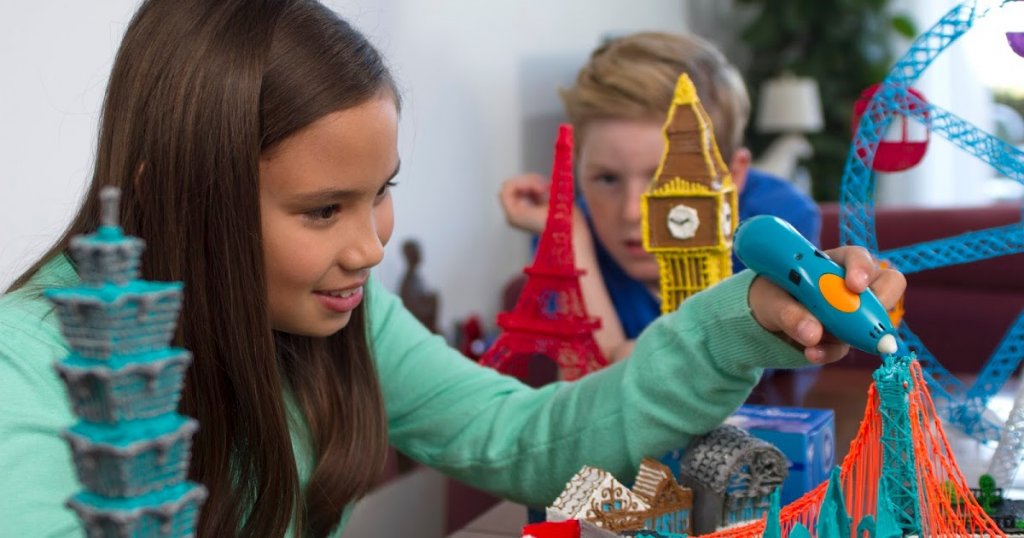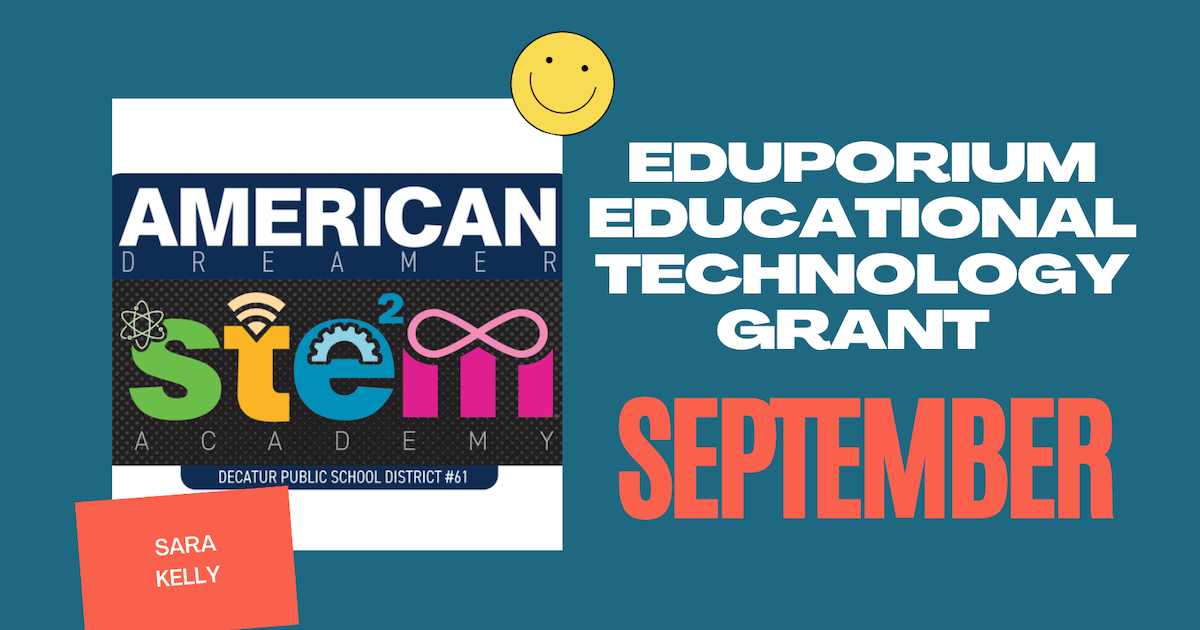For our latest tech grant, we're happy to present the award to Sara Kelly, who teaches in Illinois. Sarah is a kindergarten teacher at the American Dreamer STEM Academy, which is part of District 61 in Decatur, IL. Though she works primarily with kindergarten students, Sara truly sees immense value in exposing them to STEM learning in early education. Not only does she see it as an opportunity to help them build relevant skills, she knows the importance of helping them understand the excitement that comes along with using new ideas to solve simple or complex problems. We congratulate Sara on earning our grant award this month and can't wait to see what it helps her accomplish!
At some point, Sara realized she wanted to help children develop a love for STEAM education early in their lives. And, since she teaches kindergarten, it seemed like a pretty good opportunity. Seeing how inquisitive and creative these kids are, she's often generating ideas for hands-on, age-appropriate exploration. As is often true for educators, this means she's applied for a tech grant or two to fund these experiences. And, since we don't receive many applications from early educators, we're happy to help with enhancing their STEM program. Sara's framework is great and we're excited to see where the project goes.
Choosing 3D printing tools for her tech grant award.
For her tech grant award, we will be sending Sara and her kindergarten students a 3Doodler Start 6-pack of 3D printing pens and a few of the 3Doodler Start Essentials kits as well. This 3D printing pen is designed for kids and its thick frame ensures they can hold it in their hands. And, all the technology in the 3Doodler Start is simple to understand. Its simple start-and-stop 3D printing system only requires that children press a couple of buttons. Plus, it's completely safe—even for kids as young as six years old, which is perfect for Sara's kindergarten class. The 3Doodler Start kits also come with various accessories to help make these early makerspace experiences inclusive for young students.

More importantly for Sara, the 3Doodler projects and pens will help her cover key NGSS concepts in more of a hands-on way. She and her students are focusing on engineering concepts this school year, which is a great connection to three-dimensional doodling. Not only will students use this powerful technology in their MakerEd projects, Sara will also introduce them to the design process and design thinking after receiving her tech grant materials. Specifically, students will be challenged to build structures that provide shade or protection from the Sun. Then, as they're learning about different animals, she will also teach them about their habitat preferences and if evaluate if the students' structures will keep them warm or cool enough depending on where they live.
An EarlyEd science project.
Beyond that, Sara will give each team UV beads to place inside the structure they print with their 3Doodler pen. After some time in the Sun, the beads will remain clear if the temperature within the structure remains cool enough (meaning students did a good job in their design). If their beads change color, however, they'll have to rethink their design to make it more suitable for the animals they're each learning about. This super creative project is the perfect way, in our opinion, to introduce these important science concepts to young students. Work in the hands-on element of 3D printing with the 3Doodler Start and it's even better! Most importantly, Sara's excited to get the pens into the classroom and have students try them for the first time.
Once she receives her tech grant materials, Sara will also design a rubric for assessing student success with the project. The various elements should certainly come together and empower them to learn about engineering, design, and even the animal kingdom. Especially in a school district within which 71 percent of the families live below the poverty line, this access to high-quality STEM projects is incredibly valuable. Plus, at the American Dreamer STEM Academy alone, almost 90 percent of the students qualify for free or reduced lunch. That's why the determination to go after a tech grant can be important. So, once again we congratulate Sara and can't wait to see how things turn out! Follow us on Twitter and Instagram for more.



